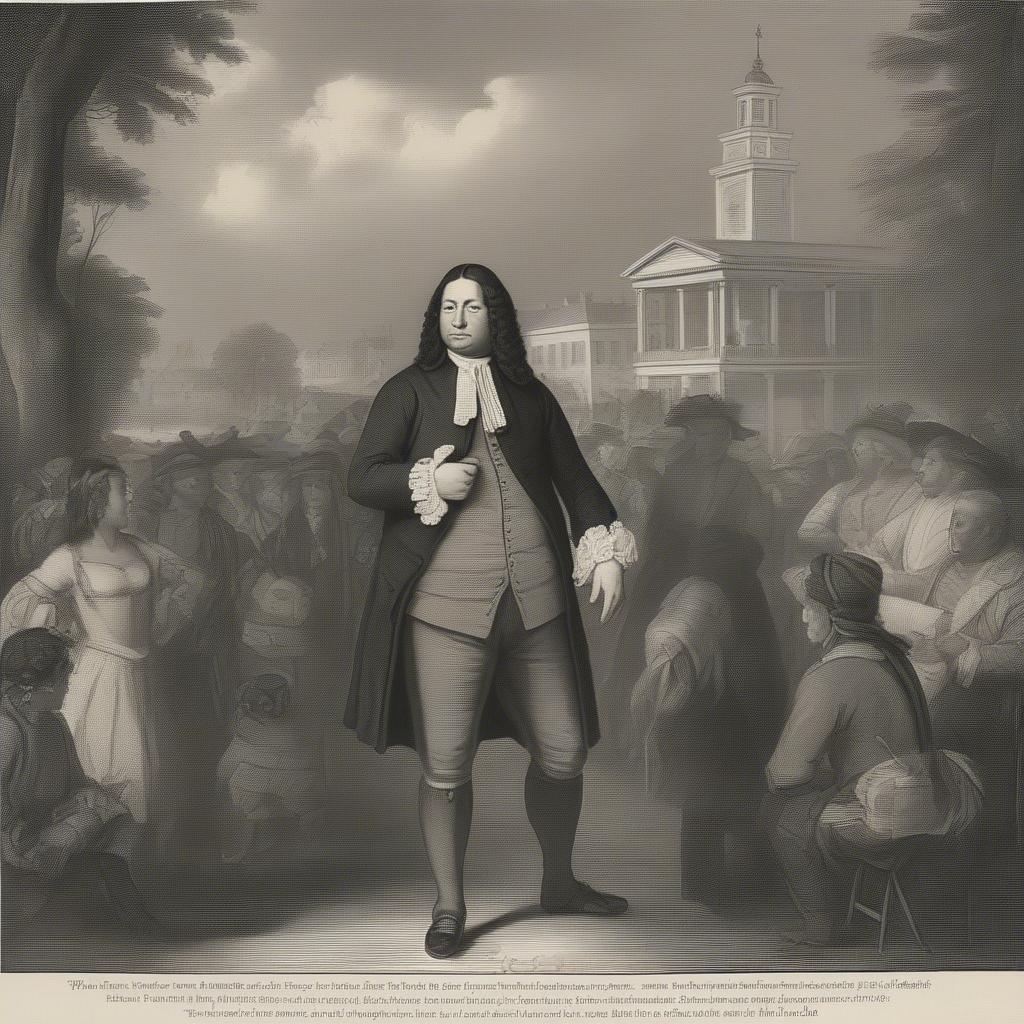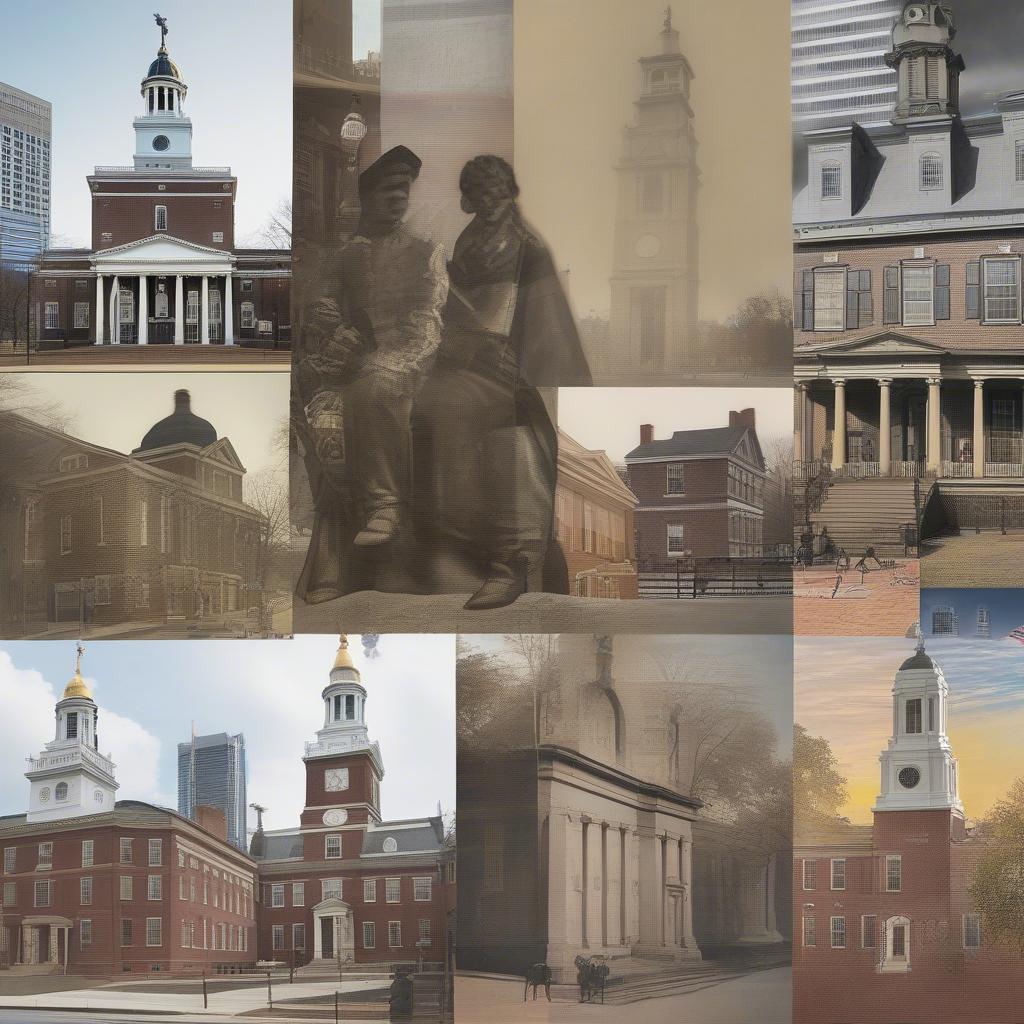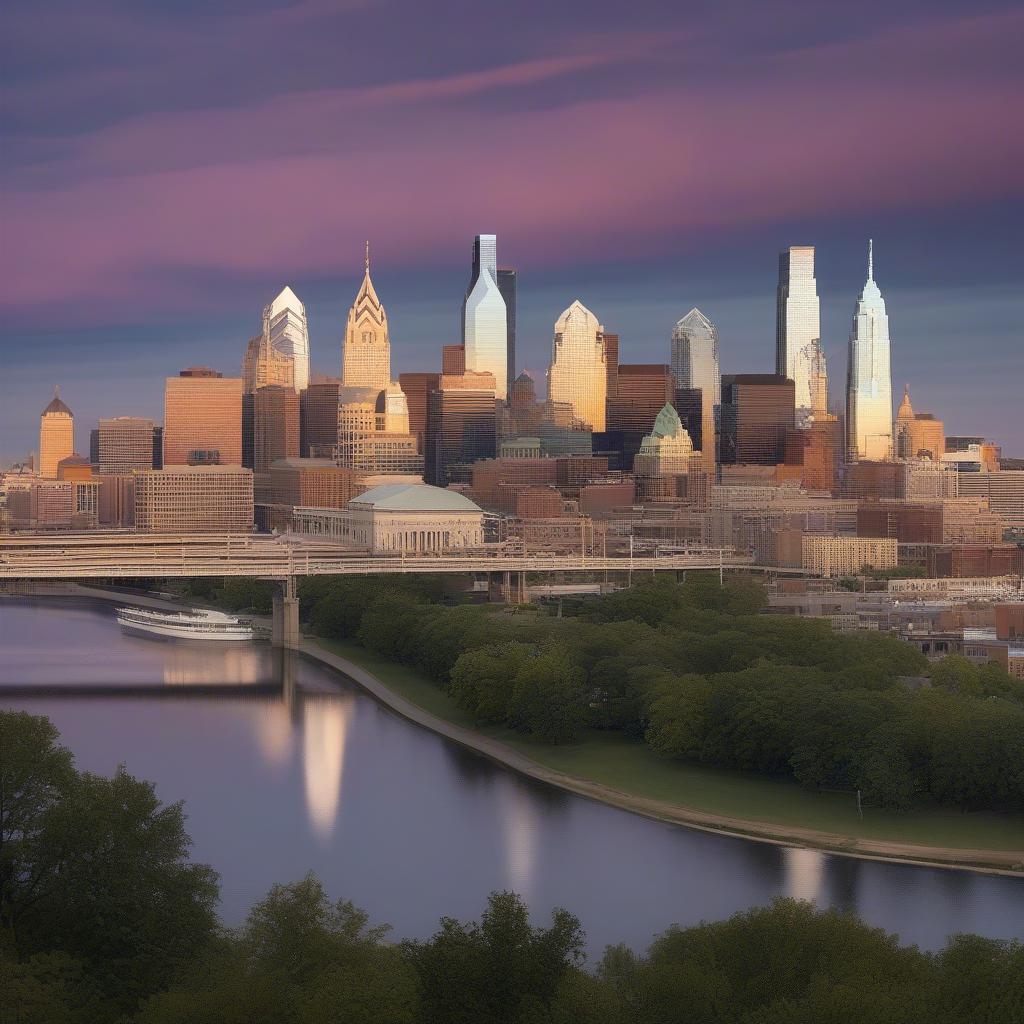Philadelphia, the birthplace of the United States, carries a nickname steeped in history and meaning: The City of Brotherly Love. But where did this moniker originate, and how has it shaped the city’s identity over the centuries? This article delves into the origins of Philadelphia’s nickname, exploring its historical context, evolving interpretations, and its relevance in the modern era.
Unpacking the Meaning: Philadelphia, the City of Brotherly Love
The name “Philadelphia” comes from the Greek words “philos” (love) and “adelphos” (brother), literally translating to “brotherly love.” William Penn, the city’s founder, chose this name to reflect his vision for a society built on tolerance, peace, and mutual respect among its diverse inhabitants. This vision, though ambitious, was grounded in the Quaker principles of equality and pacifism that Penn deeply embraced.
 William Penn Founding Philadelphia
William Penn Founding Philadelphia
The Historical Context of Brotherly Love
In the 17th century, religious persecution was rampant in Europe, forcing many to seek refuge in the New World. Penn, himself a Quaker, envisioned Pennsylvania, and Philadelphia in particular, as a sanctuary for religious freedom. He welcomed people of various faiths, including Quakers, Mennonites, Catholics, Jews, and others, fostering a diverse population that contributed to the city’s unique character. This welcoming atmosphere, though not without its challenges, marked a significant departure from the religious intolerance prevalent in Europe at the time.
Evolution of the Nickname: From Ideal to Identity
Over time, the meaning of “brotherly love” has evolved and been reinterpreted. While the initial focus was on religious tolerance, the concept has broadened to encompass a sense of community, civic engagement, and social responsibility. Philadelphians have historically demonstrated a strong sense of civic pride and a willingness to work together for the common good, exemplified by the city’s prominent role in the American Revolution and its ongoing commitment to social justice initiatives.
 Philadelphia Historical Landmarks
Philadelphia Historical Landmarks
Brotherly Love in the Modern Era: Challenges and Opportunities
Like any city, Philadelphia faces its share of challenges, including poverty, inequality, and crime. However, the spirit of “brotherly love” continues to inspire efforts to address these issues and build a more inclusive and equitable society. Numerous community organizations, nonprofits, and individuals work tirelessly to uphold the city’s founding principles and promote positive change. The concept of brotherly love acts as a guiding principle, reminding Philadelphians of their shared responsibility to create a better future for all.
Why is Philadelphia called the City of Brotherly Love in short?
Philadelphia is called the City of Brotherly Love due to its name’s Greek origin, “Philadelphia,” meaning “brotherly love,” chosen by founder William Penn to reflect his vision of a tolerant and peaceful society.
The Enduring Legacy of Brotherly Love
Despite the complexities of modern urban life, the ideal of “brotherly love” remains a powerful force in Philadelphia. It shapes the city’s identity, informs its values, and inspires its citizens to strive for a more just and compassionate world. This enduring legacy reminds us that even in a diverse and ever-changing society, the principles of love, tolerance, and mutual respect remain essential for building a thriving community.
 Modern Philadelphia Skyline
Modern Philadelphia Skyline
Conclusion
The nickname “City of Brotherly Love” is more than just a historical artifact; it’s a living testament to Philadelphia’s founding principles and ongoing commitment to building a better future. While the city, like any other, faces its challenges, the spirit of “brotherly love” continues to inspire hope and action, reminding us of the power of community, compassion, and the enduring pursuit of a more just and equitable world for all who call Philadelphia home.
FAQ
- Who founded Philadelphia? William Penn
- What does Philadelphia mean? Brotherly love.
- When was Philadelphia founded? 1682
- Why did William Penn choose the name Philadelphia? To reflect his vision of a tolerant and peaceful society based on Quaker principles.
- What is Philadelphia known for besides its nickname? Its rich history, vibrant arts scene, and delicious cheesesteaks.
Need More Help?
For further support and resources regarding relationship advice and insights, please contact us:
Email: contact@daiduongtranhba.com
Address: Michigan Ave, Suite 3100, Chicago, IL 60611, USA.
We have a 24/7 customer support team ready to assist you.

